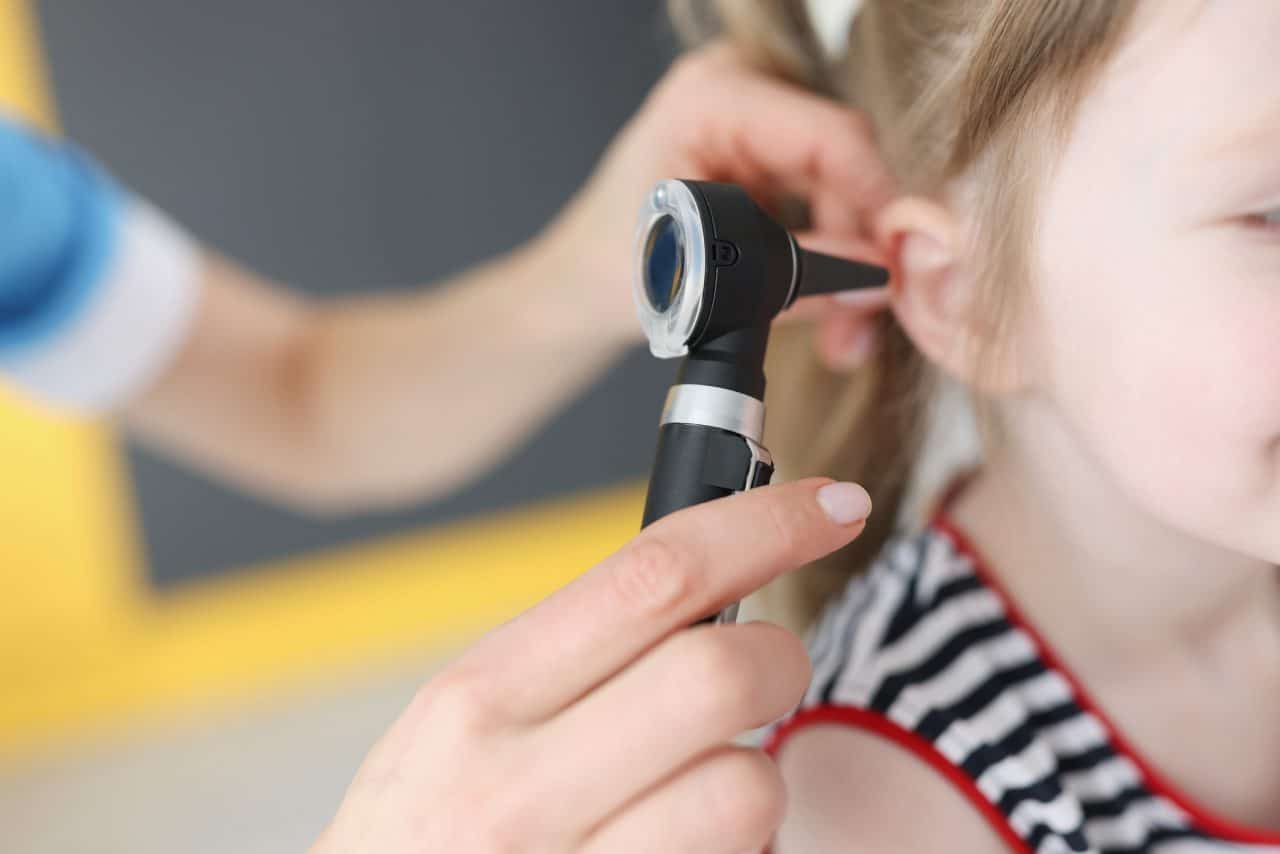If your child can’t hear well, it can impact their performance at school. Not only will they have a hard time keeping up, but they may become frustrated and act out. For these reasons, they may be misdiagnosed as having a learning disability. Below we cover how common hearing loss is in children, how the symptoms of hearing loss and learning disabilities overlap and how you can help your child.
How Common Is Hearing Loss in Children?

The CDC reports that approximately 15% of school-aged children, ages six to 19, have hearing loss of at least 16 decibels in one or both ears, and about .1% have severe hearing loss.
This can have major impacts. According to the American Speech-Language-Hearing Association (ASHA), children with mild to moderate untreated hearing loss are likely to behind their peers with normal hearing by anywhere from one to four grade levels, and those with more severe untreated hearing loss often do not progress beyond third-grade level.
Fortunately, with the right interventions, a student with hearing loss can be successful in school.
How Do Symptoms of Hearing Loss & Learning Disabilities Overlap?
Both children with hearing loss and children with learning disabilities can experience feelings of frustration if they’re having trouble following along or keeping up in class. This can lead to behaviors such as:
- Inattentiveness
- Inappropriate responses to questions
- Daydreaming
- Trouble following directions
- Speech problems
How Can I Help My Child with Hearing Loss?
If your child is exhibiting the symptoms listed above, the first thing you should do is schedule an appointment with an audiologist for a comprehensive hearing test. Hearing tests can objectively show what type of hearing loss your child has, how severe it is and what frequencies are affected.
Next, your child’s audiologist can recommend a treatment plan. For children with mild to severe hearing loss, hearing aids are the gold standard of treatment. For children with severe to profound hearing loss, cochlear implants may be recommended.
“Researchers and clinicians have assumed that that hearing aids should be good for hard-of-hearing youth in terms of learning, speech, language, and socialization,” explains Bruce Tomblin, professor in the University of Iowa’s Department of Communication Sciences and Disorders. “Our research now provides strong evidence in support of these expectations.”
Teachers in Hampton City Schools can accommodate children with hearing loss by seating them front and center, wearing lapel mics connected to their hearing aids and adding soft surfaces to the classroom.
For more information or to schedule an appointment, call Hampton Roads ENT ~ Allergy today.
